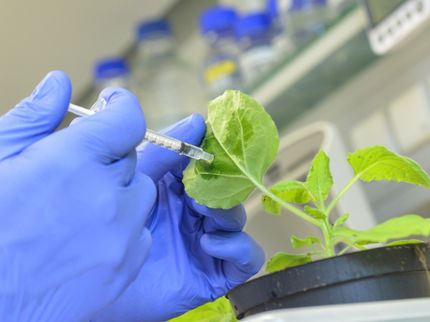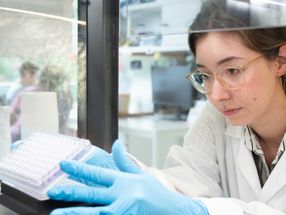Vaccines from the field?
"Green factories" - vaccines from plants: how does it work?
Advertisement
molecular farming is a method that pharmaceutical companies use to transform plants into living bioreactors. The plants are given a new genetic blueprint that enables them to produce substances for medicines and, more recently, vaccines - quickly and cost-effectively, sustainably and safely. Plants therefore have great potential to protect people from diseases with vaccines. Good news! Dr. Pablo Serrano, Head of Innovation and Research/biotechnology at the German Pharmaceutical Industry Association (BPI), explains how this production method works.
Vaccines from the field? Sounds weird, but it's not. In fact, pharmaceutical companies can turn plants into "green" biotech factories by modifying their genetic material. The method is called "molecular farming" or "molecular agriculture". Plants are made to produce substances that are valuable to humans. These active ingredients can then be used for vaccine and drug production, for example.
Tobacco plants as ideal bioreactors
The most recent example is the Covifenz® coronavirus vaccine approved in Canada by the biotechnology company Medicago Inc. in Quebec, Canada. The coronavirus vaccine protects against symptomatic infection with almost 70 percent efficacy and even up to 78 percent against a moderate to severe course, as study results have shown. Previously, the microbiologist Brian Ward from McGill University, who played a key role in the development, had also co-developed a vaccine against influenza from genetically modified plants at Medicago Inc. The Canadian coronavirus vaccine was produced in the tobacco plant Nicotiana benthamiana. Although it belongs to the same genus as its relative used in the tobacco industry, it is a different species. Tobacco plants are ideal bioreactors. They grow quickly, the leaves can be harvested several times a year and their genetic material can be modified more easily and quickly than that of other plants.
Extraction of pharmaceutical ingredients
The concept of molecular farming has been known for more than 30 years. "This production practice can be used to obtain not only vaccines, but also some important components for medicines, such as the enzyme glucocerebrosidase in carrot cells," says Serrano. People who lack this enzyme are unable to break down certain metabolic products. For example, they develop Gaucher's disease, a hereditary metabolic disorder that can lead to death. However, the missing enzyme can easily be produced in plants. "The corresponding drug was approved in 2012 and represented a major breakthrough for molecular farming," adds Serrano.
Game changer in biotechnology
In the years that followed, this method developed to such an extent that vaccines could also be produced more quickly and cost-effectively. One advantage over traditional biotechnological processes: "Pharmaceutical companies can develop a vaccine comparatively quickly and produce it in large quantities. This makes it possible to react more quickly to emergency situations," emphasizes the BPI expert. This is because the constantly growing need for vaccines and medicines is increasing the demand for alternative production options. The "green factories" are also efficient and sustainable. Dead plant parts are completely decomposed by microorganisms and fed back into the material cycle. No animal substances are required for production. This can be important for people with animal allergies, vegans or certain religious communities. Production takes place in controlled greenhouses and is therefore considered safe.
Introducing the genetic blueprint into the plants
"The method is simple: a genetic blueprint that was previously constructed in the laboratory is introduced into young plants by spraying or immersing them in a bacterial solution. The soil bacterium 'Agrobacterium tumefaciens', for example, acts as a 'cab' that transports the blueprint into the plant cell," explains Serrano. During the so-called "stable transformation", the new genetic information is incorporated into the plant genome. The process is called stable because it creates completely new plants. All cells of the offspring contain the new blueprint. "This has the advantage that the plants can reproduce at will and can be transported in the seeds without refrigeration," adds Serrano. However, this process usually takes more time.
Growing "green" bioreactors is simple
″Transient″ is the process when the genetic information introduced is not incorporated into the genome of the plants. This is then only temporarily available as a template for the production of the target protein in the cells. The genes of the offspring then do not contain the new information. In this process, the "green" bioreactors can produce the vaccine within a short period of time. "Plants have great potential for producing therapeutic agents and vaccines," emphasizes Serrano. "They are easy to grow and only require light, water and nutrients."
Note: This article has been translated using a computer system without human intervention. LUMITOS offers these automatic translations to present a wider range of current news. Since this article has been translated with automatic translation, it is possible that it contains errors in vocabulary, syntax or grammar. The original article in German can be found here.





























































